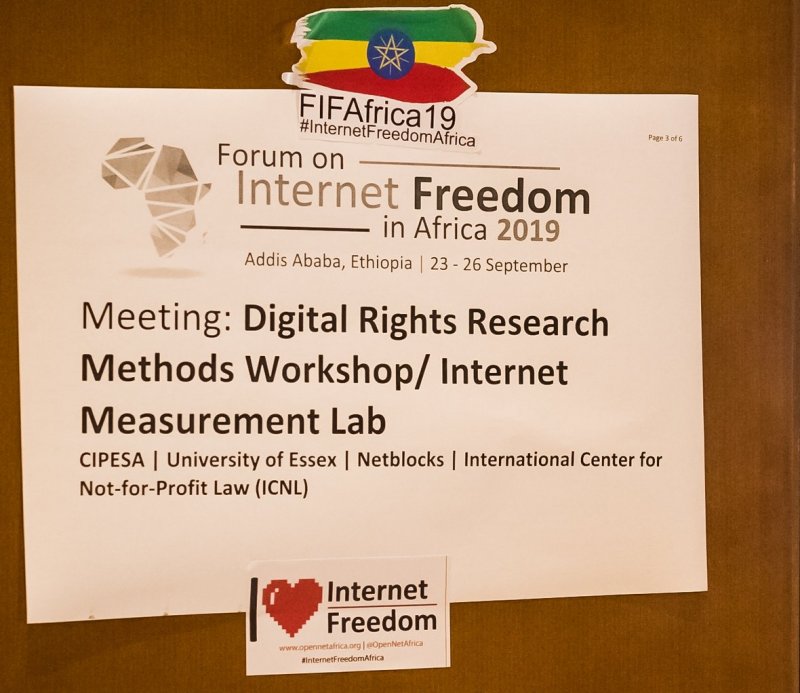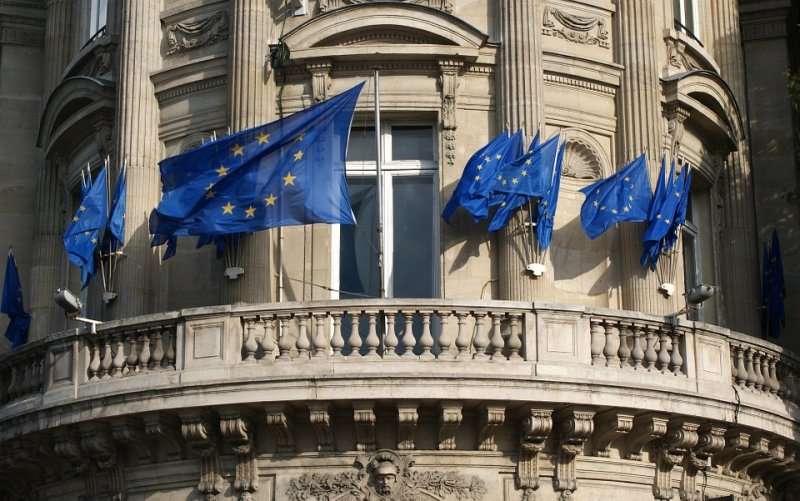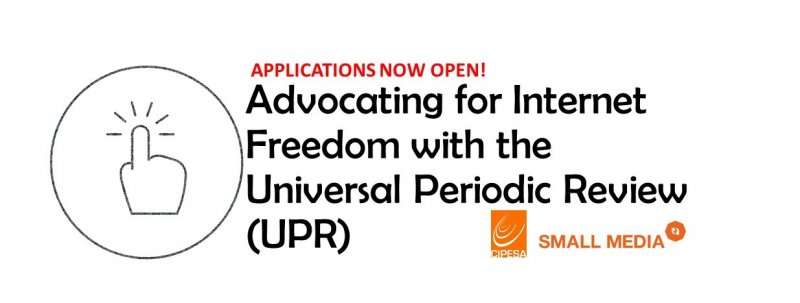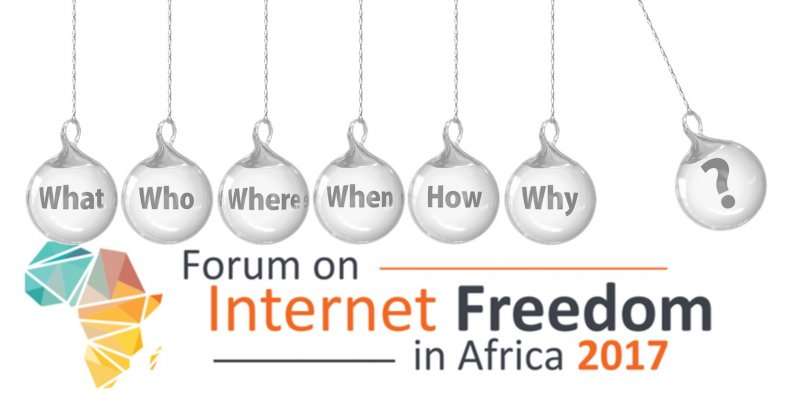By CIPESA Staff Writer |
Evidence-based digital rights advocacy has become particularly crucial in Africa as a growing number of governments and powerful private actors continue to undermine citizens’ online rights through legal and extra-legal means.
But as the need for internet policy advocacy that is informed by research grows, it is essential to increase the amount and depth of research originating from, and relevant to, Africa. Equally, it is necessary to expand beyond traditional research methods to include contemporary approaches such as network measurements, social network analysis, and data mining.
How then do we grow subject area expertise and capacity in conducting multi-disciplinary digital rights research among the digital rights researcher and practitioner communities? How can we build multi-sector and multi-country collaborations that produce actionable research results to inform advocacy and policy making?
These questions were at the centre of a Digital Rights Research Methods Workshop conducted on September 24, 2019 as one of the pre-events to the 2019 Forum on Internet Freedom in Africa (FIFAfrica19) in Addis Ababa, Ethiopia. The workshop was attended by 58 participants who included university lecturers, staff of international human rights organisations, digital rights researchers, activists, technologists and lawyers.
It built on the foundations of a five-day intensive training on internet policy research methods co-organised with the Annenberg School for Communication’s Internet Policy Observatory in 2018, which aimed to train, connect, and build collaboration between researchers, activists, academics and internet freedom advocates, and brought together 40 participants from 17 countries.

Below are highlights from the Digital Rights Research Methods Workshop held at FIFAfrica19.
Qualitative Research Techniques and Data Practices for Human Rights Research
This track explored the role and potential of qualitative methods and techniques when conducting research on human rights issues. While many techniques are available to researchers, qualitative methods can generate important insights into the social, cultural, and individual worlds of participants.
In this session, Prof. Peter Fussey, a Director at the Centre for Research into Information, Surveillance and Privacy (CRISP) at the University of Essex, explained that while qualitative methods are varied, they largely adopt three broad approaches: qualitative interviewing, ethnographic method, and qualitative text analysis.
While describing these methods in detail, Prof. Fussey – who is also a Research Director of the Human Rights, Big Data and Technology project – explained what constitutes robust and methodologically rigorous research. He provided examples of how such techniques have been used in many creative ways and have offered insights into issues such as how power is experienced and mediated in prisons, the lives of activists, social bonds among social movements, community perspectives of intensive policing, online behaviours, and occupational cultures among law enforcement officers.
Experiences in conducting digital rights research
In this session, Jimmy Kainja (University of Malawi), Raymond Onuoha (Lagos Business School), Richard Ngamita (data specialist), Victor Kapiyo and Paul Kimumwe (CIPESA), shared experiences in researching digital rights. They cited several challenges like data unavailability, low research funding, resistance to researching on “sensitive” topics like LGBTI rights, continued reliance on traditional research approaches, underutilisation of available digital data, difficulties in finding government information online, and difficulty in finding the right collaborators.

According to Kimumwe, there is a lack of a pool of researchers with the relevant skills to conduct digital research. “There is no specific training of researchers. There is a lot of learning on the job and this sometimes compromises on the quality of research outputs since some critical issues are ignored – like choosing the best possible method, sampling and ethical considerations,” he said.
Other challenges mentioned include poor dissemination of research results to relevant audiences including policy makers and human rights defender organisations; and failure to make research part and parcel of digital rights advocacy work. It was recommended that, wherever feasible, government officials and other stakeholders be included in the research design in order for the research results to be used to influence these stakeholders. Also recommendation was nurturing collaborations involving academic institutions, research institutions and digital rights advocacy organisations; capacity building in fundraising for research; and developing an African open data ecosystem to enhance access to research data, data sharing, and data re-use.
Assessing Legal Frameworks Affecting Civic Space
Track three of the workshop introduced participants to the concepts of civic space and international principles protecting association, assembly, and expression rights. During the session, Irene Petras and Florence Nakazibwe from the International Center for Non-Profit Law (ICNL), provided examples of how various types of legislation are used to restrict these rights in practice, including in the digital space; and shared strategies on how to raise civic awareness of legal frameworks and promote legal reforms to improve the enabling environment for civil society and the media.
It was noted that governments, including in Africa, are increasingly restricting civic space in different ways. While the restrictions have traditionally manifested through legislation aimed at regulating the operations of civil society organisations and mainstream media, new concerns such as countering money laundering and terrorism, regulating current and emerging digital technologies, and policing online activities have widened the menu of laws, policies and administrative practices that can negatively affect civic space.
Accordingly, noted Petras and Nakazibwe, greater efforts are needed to ensure effective and progressive international and continental legal standards and protective mechanisms, and to widen the network of state and non-state actors who can advocate for positive reforms.
The Internet Measurements Laboratory
The growing internet user numbers in Africa make it prudent to understand the structure and behaviour of the internet. This is important given the rising incidents of malicious attacks (and the sophistication of methods and tools used) as well as the increase in cases of internet censorship and network disruptions (with little transparency by censoring states and telecom companies about their actions).
The Laboratory was led by Alp Toker and Isik Mater of Netblocks. In the first part they took participants through why measurement evidence-based approaches to internet rights advocacy are critical, what impact they are having, how the latest tools can be used and coordinated by technical and civil society stakeholders, and how data can be integrated as evidence in legal and policy-making contexts. The second half featured real-time visualisations exploring various countries’ current and historic internet data readings, and future directions for network measurements.
Measuring the occurrence of internet censorship and identifying techniques employed is instrumental to scientifically documenting the phenomenon, understanding its effects, raising the awareness of users and building response mechanisms. The aim of the Internet Measurement Laboratory was to get more African actors, notably those that work on internet freedom issues, involved in conducting regular, multi-methods internet measurements.
The Laboratory was also expected to help generate closer linkages between measurement organisations and internet freedom researchers, advocates and activists; and offer practical knowledge on how to utilise measurement data from entities so as to generate research insights to improve understanding of the technological ways through which internet disruptions have been implemented over time and in various countries, and to build responsive response mechanisms and advocacy campaigns.
Participants at the Digital Rights Research Methods Workshop Internet Measurement Lab by @CIPESAUg @Uni_of_Essex and @Netblocks are learning about research methodologies for Digital Rights issues in Africa #FIFAfrica19 #InternetFreedom pic.twitter.com/HOJfQ7YiMW
— CIPESA (@cipesaug) September 24, 2019
According to 2018 research by the African Network Information Centre (Afrinic), there are very few measurement campaigns in Africa and they tend to have challenges of generating high fidelity data. Moreover, there is widespread lack of awareness and skills on internet measurements, which creates a need for increasing research collaborations between groups that conduct measurements, and those that need measurement results for research and advocacy purposes.
Way forward
There was consensus in the workshop on the need to build reciprocal relationships across disciplinary silos, as well as collaborative networks that include researchers and practitioners based in different regions, including in the global North and South. Continued research methods training, including in techniques such as text analysis, data mining, and network measurements, was reiterated. Capacity development to conduct research, advocacy and policy influencing on emerging issues such as biometrics processing and artificial intelligence was also cited.
“This workshop has helped us to appreciate more the gaps and challenges in digital rights research methods in our region. As researchers and practitioners, we need to keep abreast with the fast developments in the digital world. What are the new surveillance methods? How do AI and biometrics processing affect digital rights, and how do we robustly research these issues? The workshop brought together an incredible mix of stakeholders and illuminated ways for collaboration to conduct relevant and impactful research whose results can power advocacy and influence policy in multiple jurisdictions.” Dr Wairagala Wakabi, CIPESA Executive Director
Further, it was agreed that entities that have research skills start to offer support to others, in research design and implementation; and that they pursue joint research and be available to conduct peer review of others’ research. It was also proposed that digital rights researchers and practitioners should forge closer links with the private sector to produce credible analysis on policies and practices affecting tech use and digital rights.





 Share your thoughts on your vision for Internet Freedom in Africa using #InternetFreedomAfrica This year, the event hashtag is #FIFAfrica18
Share your thoughts on your vision for Internet Freedom in Africa using #InternetFreedomAfrica This year, the event hashtag is #FIFAfrica18